대한전자공학회
The Institute of Electronics and Information Engineers
The Institute of Electronics and Information Engineers
|
(사)대한전자공학회 연구회 행사
|
|
사전등록기간 : ~ 2021. 7. 16.(금) 18시
초대의 글
여름학교 개요
프로그램 (세부일정)
[ 2021년 7월 21일(수)~22일(목). 온라인 방식(접속경로 추후공지) ]
- 발표자료는 인쇄본이 아니라 온라인 형태로 제공됩니다 - 첫째날 : 2021년 7월 21일(수)
* 주최측의 사정으로 프로그램이 일부 변경될 수 있습니다.
* 각 발표 시간은 50분, 100분 (Q&A 포함),이며, 각 발표는 Zoom Webinar를 통해 이루어집니다. * 각 발표시간 강의 사이트와 ID/PW는 추후 강의시작 1일 전에 등록자 이메일로 공지됩니다. * 발표 자료는 인쇄본이 아니라 온라인 형태로 제공됩니다. 여름학교 등록안내
여름학교 등록비 안내
o 여름학교 자료는 책자인쇄 제공은 하지 않으며, 파일형태로 제공됩니다. (PDF파일 제공 - 행사전일 E-메일 안내) o 카드결제가 불가하신 분께서는 계좌시, 아래 계좌정보로 이체하여 주시기 바랍니다.
o 대한전자공학회 사업자등록증(2021년) 사본 (클릭 다운로드 -PDF) 영수증 및 계산서 발급안내
문의처
|
||||||||||||||||||||||||||||||||||||||||||||||||||||||||||||||||||||||||||||||||
첫째날 : 2021년 7월 21일(수)
| 시간 | 프로그램 | 강연자 |
|---|---|---|
| 10:00 - 10:10 | 인사말 및 개회사 김종옥 회장 (신호처리소사이어티) |
고병철 위원장 (영상이해연구회) 이채은 위원장 (영상신호처리연구회) |
| 10:10 – 11:50 (100’) |
Camera Calibration – Geometric Perspectives | 이덕우 교수 (계명대학교) |
| 11:50 – 13:00 (70’) |
점심식사
|
|
| 13:00 – 13:50 (50’) |
Deep Neural Networks via Laplacian Pyramids | 김원준 교수 (건국대학교) |
| 13:50 – 15:30 (100’) |
Self-supervised learning representation and its applications | 어영정 교수 (연세대학교) |
| 15:30 – 15:40 (10’) |
Coffee break
|
|
| 15:40 – 16:30 (50’) |
Attention Model: gentle introduction and recent advances | 민동보 교수 (이화여자대학교) |
| 16:30 – 18:10 (100’) |
Few-shot and Continual Learning | 최종현 교수 (GIST) |
둘째날 : 2021년 7월 22일(목)
| 시간 | 프로그램 | 강연자 |
|---|---|---|
| 09:30 – 10:20 (50’) |
Machine Learning for Self-driving Cars at Scale | 김진규 교수 (고려대학교) |
| 10:20 – 11:10 (50’) |
Machine Learning for Autonomous Driving: Behavior Prediction | 박은병 교수 (성균관대학교) |
| 11:10 – 12:00 (50’) |
Urban HD Mapping for Autonomous Driving | 백종윤 책임리더 (네이버랩스) |
| 12:00 – 13:00 (60’) |
점심식사
|
|
| 13:00 – 13:50 (50’) |
Edge-Cloud Collaborative DNN Inference for Efficient Image/Video Processing | 고종환 교수 (성균관대학교) |
| 13:50 – 14:40 (50’) |
효율적인 딥러닝 모델을 위한 경량화 및 하드웨어 가속 기술 동향 | 강석주 교수 (서강대학교) |
| 14:40 – 15:30 (50’) |
Hardware accelerated ultra-high speed video processing on mobile devices | 김태성 교수 (선문대학교) |
| 15:30 – 15:40 (10’) |
Coffee break
|
|
| 15:40 – 16:30 (50’) |
Fundamentals of Domain Adaptation for Visual Applications | 정희철 교수 (경북대학교) |
| 16:30 – 17:20 (50’) |
효율적인 신호처리를 위한 Domain Adaptation 기반 Classification, Detection, Segmentation 기술 동향 소개 |
황원준 교수 (아주대학교) |
| 연사 | 강연 요약 및 연사정보 |
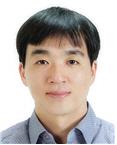 이덕우 교수 (계명대학교) |
인공지능 기술이 사회 전반적인 영역으로 확대됨에 따라 인공지능 기술을 구현하기 위해 필요한 기반기술들에 대한 수요도 높아지고 있다. 인간이 정보를 얻는 수단으로 시각을 약 70%정도 사용하는 것으로 알려져 있는 것에 비추어 볼 때, 인간의 시각정보 획득, 이해, 분석, 인지, 추론을 기계로 구현하는 영상처리 및 컴퓨터 비전 기술은 적용 분야 및 기술의 발전은 앞으로도 계속될 것이다. 2차원 영상으로부터 3차원 정보를 얻는 컴퓨터 비전 기술은 여러 가지 요소기술들이 적절하게 개발되어야 하는데 그 중 영상을 획득하기 전에 카메라의 내부 파라미터와 외부 파라미터를 계산하는 캘리브레이션 결과는 깊이 카메라 또는 3차원 카메라의 성능에 큰 영향을 미친다. 본 강연에서는 카메라 캘리브레이션의 기본 원리, 알고리즘의 개발 동향 및 응용분야에 대해 살펴본다.
Bio : Deokwoo Lee received B.S. degree in Electrical Engineering and Computer Science from Kyungpook National University, Daegu, South Korea, in 2007 and received M.S and Ph.D degrees in Electrical Engineering from North Carolina State University, Raleigh, NC. USA, in 2008 and 2012, respectively. In 2013, he worked in Washington University in St. Louis as a postdoctoral research associate. From 2013 to 2016, he worked in Camera R&D group, Division of Mobile Communications at Samsung Electronics as a Senior Engineer. In 2016, he worked at Youngsan University, Busan, South Korea as an assistant professor. In 2018, he joined department of computer engineering at Keimyung University, Daegu where he is currently working as an assistant professor. His research areas cover computer vision, image and signal processing. |
 김원준 교수 (건국대학교) |
본 강연에서는 영상처리 및 컴퓨터 비전에서 꾸준히 사용되고 있는 라플라시안 피라미드를 심층신경망에 적용한 응용 분야에 대해 설명 한다. 특히, 라플라시안 피라미드를 기반으로 압축된 특징 공간에 대한 분해를 통해 각 Task에 적합한 복원 과정을 효과적으로 학습할 수 있음을 저조도 화질 개선(Low-light Image Enhancement) 및 깊이 예측(Monocular Depth Estimation)을 통해 보인다.
Bio : 2020. 3 ~ 현재 : 건국대학교 부교수 2016. 3 ~ 2020. 2 건국대학교 조교수 2012. 9 ~ 2016. 2 : 삼성종합기술원 전문연구원 2008. 9 ~ 2012. 8 : 한국과학기술원(KAIST) 박사 |
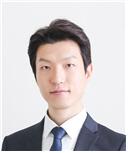 어영정 교수 (연세대학교) |
분류문제를 위해 학습된 convnet의 중간 표현자(representation)는 분류 이외의 다른 비전문제도 효과적으로 사용됩니다. 하지만 분류문제를 위한 convnet의 학습은 수작업으로 레이블을 붙인 대량의 데이터에 의존합니다. 이러한 레이블링의 비용을 들여서 분류문제의 정답을 만들어서 표현자를 학습하는 대신, 쉽게 임의로 정답을 만들 수 있는 문제를 통해 표현자를 학습하는 방법을 self-supervised learning이라고 합니다. Self-supervised learning은 최근 여러가지 비전문제의 성능을 향상시키고있습니다. 본 강의의 초반부에서는 초기의 고정된 타겟을 예측하는 방법들, 최근의 contrastive / siamese 방법들, 그리고 비디오의 연속성을 이용한 방법들을 소개합니다. 후반부에서는 self-supervision을 이용하여 weakly-supervised object localization과 video generation의 성능을 향상시킨 연구를 소개합니다.
Bio : 2020. 9 ~ 현재 : 연세대학교 조교수 2018. 8 ~ 2020. 8 : NAVER CLOVA AI Research 연구원 2018. 8 : 연세대학교 컴퓨터과학과 박사 |
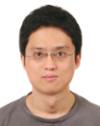 민동보 교수 (이화여자대학교) |
Attention model은 기계번역(Machine Translation)을 위해 처음 제안된 이후, 자연어처리 이외에도 컴퓨터비전과 같은 다양한 분야에 폭넓게 활용되고 있다. 본 강연에서는 Attention model에 대한 개괄적 소개와 이를 컴퓨터비전 분야에 적용한 사례를 설명한다. 또한, Attention model의 가장 큰 문제점인 높은 계산 복잡도를 낮추기 위해 제안된 최신 기법들을 소개한다.
Bio : Dongbo Min received the BS, MS, and PhD degrees from the School of Electrical and Electronic Engineering, Yonsei University, Seoul, South Korea, in 2003, 2005, and 2009, respectively. From 2009 to 2010, he was a post-doctoral researcher with Mitsubishi Electric Research Laboratories, Cambridge, Massachusetts. From 2010 to 2015, he was with the Advanced Digital Sciences Center, Singapore. From 2015 to 2018, he was an assistant professor with the Department of Computer Science and Engineering, Chungnam National University, Daejeon, South Korea. Since 2018, he has been with the Department of Computer Science and Engineering, Ewha Womans University, Seoul, South Korea. His current research interests include computer vision, deep learning, video processing, and continuous/discrete optimization. |
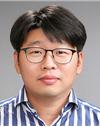 최종현 교수 (GIST) |
물체 인식 등의 모델을 학습할 때, 많은 양의 데이터를 필요로 하는 경우가 많다. 그러나 많은 양의 데이터는 모으기가 어려우며, 품질을 관리하기도 쉽지 않다. 게다가 데이터를 구축할 당시에 어떤 물체들을 인식해야 할지 정하는 일도 쉽지 않다. 최근에 전체 데이터로 다시 학습하지 않고도 물체의 카테고리를 연속적으로 추가 할 수 있는 continual learning (연속 학습) 방법이 각광을 받고 있다. 본 강연에서는 적은 데이터로 학습하는 알고리즘들과 연속 학습을 위한 최신 방법들에 대해 소개하고, 앞으로의 연구 방향을 논의하고자 한다.
Bio : 2003년 서울대학교 전기공학부 (학사), 2008년 서울대학교 전기컴퓨터공학부(석사), 2015년 University of Maryland, College Park (박사). 2011년 미국 육군 연구소 인턴, 2013년 어도비 연구소 인턴, 2014년 디즈니 연구소 인턴, 2014년 마이크로소프트 연구소 (Redmond) 인턴, 2016년 앨런 인공지능 연구소 (AI2) 연구원. 2018년-현재 광주과학기술원 AI대학원/전기전자컴퓨터공학부 조교수. 관심분야는 약한 지도 상황에서의 시각 인식 (이미지, 비디오 이해) 알고리즘 개발. |
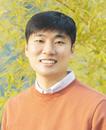 김진규 교수 (고려대학교) |
최근 정보통신기술(ICT)의 급격한 발전으로 자율주행 자동차의 상용화가 본격화되고 있다. 각국의 완성차 업체 및 구글, 아마존 등 Tech 기업들이 자율주행 자동차 시장에 적극적으로 진출하고 있다. 완전 자율주행을 위해서는 스스로 도로 상황, 장애물 등 주변 환경을 인식하고 이를 바탕으로 차량을 제어할 수 있어야 한다. 이를 위해 시스템은 보통 객체 인식 및 예측, 차량 모션 제어 등 모듈화 된 구조를 가지며, 각 모듈은 최근 빠르게 딥러닝 모델로 대체되고 있다. 본 강연에서는 최근 부상하고 있는 자율주행차의 기술 개발 동향을 소개하고 자율주행에 사용되는 인공지능 기술들을 소개하고자 한다.
Bio : [학력]: 2010 고려대 학사 (전기전자공학) 2010 고려대 석사 (전자컴퓨터공학) 2019 UC Berkeley 박사 (컴퓨터과학) [경력] 2010-2014 LG Display 연구센터 주임연구원 2014-2015 서울대학교 자동화연구센터 보조연구원 2015 Samsung SDS 연구인턴 2017 Phantom AI 연구인턴 2018 Honda Research Institute USA 연구인턴 2019 Waymo LLC 연구인턴 2020 Waymo LLC Research Scientist [연구분야] 자율주행을 위한 인공지능 모델, 설명 가능 및 사용자 조언 내재화 인공지능 모델 |
 박은병 교수 (성균관대학교) |
기계학습 알고리즘은 Mapping, Perception, Prediction, Planning, and Control 와 같은 자율주행을 달성하기 위한 거의 모든 분야에 유용하게 사용되고 있다. 본 세션에서는 미래 행동 예측(Behavior Prediction)을 중점적으로, 상호 작용 모델링(interaction modeling)과 멀티 모달 예측(multi-modal prediction)을 위한 최신의 기계학습 알고리즘을 소개한다.
Bio : Eunbyung Park received the B.S., M.S. and Ph.D. degrees in Computer Science from Kyung-Hee University, Seoul National University, and University of North Carolina at Chapel Hill in 2009, 2011 and 2019, respectively. In 2021, he joined the Department of Electronic and Electrical Engineering at SungKyunKwan University, Korea, where he is currently working as an assistant professor. Prior to SKKU, he shortly worked at Microsoft as an applied scientist. From 2019 to 2020, he was a research scientist at Nuro, autonomous driving startup, where he conducted research on prediction and planning algorithms based on imitation learning and reinforcement learning. During his phd, he worked at various research organizations as research interns, HP Labs, Adobe Research, Microsoft Research, and Google DeepMind. His research interests span the field of machine learning and computer vision. |
 백종윤 책임리더 (네이버랩스) |
Urban HD Mapping for Autonomous Driving
Email: jongyoon.peck@naverlabs.com
도로 자율주행 플랫폼은 미래의 자동화된 도심 공간을 구성하는 핵심 요소입니다. 이를 위해 네이버랩스에서는 HD mapping, localization, planning/control, perception으로 구성된 풀스택 자율주행 요소기술들을 자체 개발하고 있습니다. 본 발표에서는 그 중 도로 정보를 담고 있는 고정밀 지도인 HD map에 대해서 살펴보고 기계학습과 컴퓨터 비젼 기술을 활용하여 어떤 방식으로 제작되고 업데이트 되는지 설명합니다. 그리고 이렇게 구축된 고정밀 지도가 자율주행에 어떻게 활용되고 있는 소개합니다.
Bio : NAVER LABS 책임리더 (2019~)
대통령직속 4차위 자율주행분과 자문위원 (2018) NAVER (2016~) 삼성테크윈 선행기술연구소 (2008-2016) Mechanical Engineering 석사 /Stanford University 기계항공공학 학사 / 서울대학교 |
 고종환 교수 (성균관대학교) |
최근 가속기 HW의 발전에 따라 edge device로 딥러닝 추론을 수행하는 응용이 증가하고 있으나, 복잡한 딥러닝 모델을 통해 고화질/고속 영상을 추론하는 경우 여전히 저전력 edge device에서의 throughput과 energy 소모 요구사항을 만족시키기 어렵다. 이를 해결하기 위해 딥러닝 모델을 분할하여 edge device와 cloud server로 offloading 하는 collaborative inference 개념이 제시되었다. 이를 위해 최적 layer 분할, 분할된 feature의 압축, 손실된 feature에 robust한 추론 등에 대한 고려가 필요하며, 분할에 적합하도록 모델 구조를 변경하는 기법도 필요하다. 본 강연에서는 효과적인 collaborative inference를 달성하기 위한 다양한 관점에서의 이슈와 해결책을 살펴보고, 이와 관련하여 본 연구팀이 수행중인 연구 내용을 소개한다.
Bio : Jong Hwan Ko received double B.S. degrees in computer science and engineering and mechanical and aerospace engineering from Seoul National University, where he received the M.S. degree in electrical engineering and computer science. During his seven years’ research experience at the Agency for Defense Development (ADD) in Korea, he conducted research on the design and performance analysis of military wireless sensor networks. He received the Ph.D. degree from the School of Electrical and Computer Engineering at Georgia Institute of Technology in 2018, and joined Sungkyunkwan University (SKKU) in Korea as an assistant professor. His research interests are design of low-power image sensor systems and deep learning accelerators for efficient image/audio processing. He has received the Best Paper Award at the International Symposium on Low Power Electronics and Design (ISLPED) in 2016. |
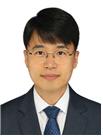 강석주 교수 (서강대학교) |
현재 다양한 분야에서 딥러닝 기술이 적용되면서 기존보다 경량화된 모델과 고속 연산을 위한 하드웨어 가속 구조를 필요로 하고 있다. 모델 경량화 기술은 성능은 유지하면서 모바일 기기에 탑재가 가능하도록 설계하는 기술을 의미하며, 하드웨어 가속 기술은 딥러닝 연산을 가속화하도록 설계하는 기술을 의미한다. 본 강연에서는 효율적인 딥러닝 모델을 위한 경량화 및 하드웨어 가속기를 위한 기술들을 살펴보고 현재 연구팀이 진행 중인 관련 연구를 소개한다.
Bio : Suk-Ju Kang received a B.S. degree in electronic engineering from Sogang University, Rep. of Korea, in 2006 and a Ph.D. degree in electrical and computer engineering from Pohang University of Science and Technology in 2011. From 2011 to 2012, he was a senior researcher at LG Display, where he was a project leader for resolution enhancement and multi-view 3D system projects. From 2012 to 2015, he was an assistant professor of electrical engineering at the Dong-A University, Busan. He is currently an associate professor of electronic engineering at the Sogang University. His current research interests include image analysis and enhancement, video processing, multimedia signal processing, circuit design for display systems, and deep learning systems |
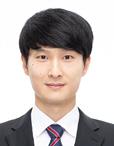 김태성 교수 (선문대학교) |
Hardware accelerated ultra-high speed video processing on mobile devices
Email: ts7kim@sunmoon.ac.kr 최근 몇 년간 스마트폰 시장을 뜨겁게 달군 주요 키워드는 카메라의 혁신이었다. 세계 주요 스마트폰 및 어플리케이션 프로세서 제조사들은 이미지의 화질, 처리속도, 전력소모 등 다각적인 측면에서 우위를 점하기 위해 경쟁적으로 기술을 개발하였고, 자사 스마트폰 및 어플리케이션 프로세서의 이미지 처리 능력을 과시하는 마케팅을 펼쳐왔다. 최근에는 그 경쟁이 더욱 격화되어 단일 이미지 처리 능력의 과시에 그치는 것이 아니라, 초고속-실시간 처리가 요구되는 동영상 처리에 까지 옮겨 붙고 있다. 본 강연에서는 발열, 전력 측면에서 제약이 매우 엄격한 모바일 디바이스에서 초고속-실시간 동영상 처리 알고리즘의 하드웨어 가속, 저전력화 방법론에 대해 알아본다.
Bio : Tae Sung Kim received the B.S degree in electrical electronic engineering from Pusan National University, Pusan, Korea, in 2010 and the M.S. and Ph.D. degree in electrical and computer engineering from Seoul National University, Seoul, Korea, in 2013 and 2017. From 2018 to 2021, he worked at the Multimedia Development Team, System LSI Division, Samsung Electronics Corporation, Hwaseong, Korea, as a staff engineer, where he was involved in hardware design for video processor. In 2021, he joined the department of Electronic Engineering at Sun Moon University, Asan, Korea, where he is currently working as an Assistant Professor. His major research interests include the algorithms and hardware architecture design for video coding systems and various video applications. |
 황원준 교수 (아주대학교) |
효율적인 신호처리를 위한 Domain Adaptation 기반 Classification, Detection, Segmentation 기술 동향 소개
Email: wjhwang@ajou.ac.kr 효율적인 영사 신호처리를 위해 환경 변화에 빠르게 대응 가능한 기술로 최근 Domain Adaptation이 주목을 받고 있다. Domain Adaptation 기술은 최근 영상 기반 Object Classification, Object Detection 그리고 Segmentation에 까지 적용되고 있다. 본 강연에서는 최근 발표된 최신 Domain Adaptation 기술에 대한 분야별 최신 논문 설명과 함께 Database별 SOTA 성능에 대해서 고찰해 보고자 한다.
Bio : Wonjun Hwang received both B.S. and M.S. degrees from the Department of Electronics Engineering, Korea University, Korea, in 1999 and 2001, respectively, and Ph.D. degree in the School of Electrical Engineering, Korea Advanced Institute of Science and Technology (KAIST), Korea, in 2016. From 2001 to 2008, he was a research staff member in Samsung Advanced Institute of Technology (SAIT), Korea. In 2004, he contributed to the promotion of Advanced Face Descriptor, Samsung and NEC joint proposal, to MPEG-7 international standardization. In 2006, he proposed the SAIT face recognition method which achieved the best accuracy under the uncontrolled illumination situation at Face Recognition Grand Challenge (FRGC) and Face Recognition Vendor Test (FRVT). In 2006, he developed the real-time face recognition engine for the Samsung cellular phone, SGH-V920. From 2009 to 2011, he was a senior engineer in Samsung Electronics, Republic of Korea, where he worked on developing face and gesture recognition methods for Samsung humanoid robot, a.k.a RoboRay. In 2011, he rejoined the SAIT as a research staff member. From 2011 to 2014, he worked for a 3D medical image processing of Samsung surgical robot. From 2014 to 2016, he worked on developing deep learning-based face detection and recognition methods for Samsung Galaxy series. He is now an associate professor at the department of Software and Computer Engineering and the department of Artificial Intelligence, Ajou University, Republic of Korea. His research interests are in computer vision, pattern recognition, and deep learning. |
 정희철 교수 (경북대학교) |
컴퓨터 비전에서는 조명의 변화, 카메라 센서의 변화 등과 같이 주변 환경의 변화가 인식률 하락의 주요 원인이 된다. 이러한 문제를 해결하기 위해 최근에는 딥러닝 알고리즘이 다양한 환경 변화에 적응 가능하도록 하는 Domain Adaptation 이라는 기술이 활발히 연구되고 있다. 본 강연에서는 이러한 Domain Adaptation 기법에 대한 문제 정의를 먼저 한 후, 초기에 제안되었던 ADDA, Deep CORAL 등의 기법들에 대해 소개하고자 한다.
Bio : Heechul Jung received the B.S. degree from Sejong University, Seoul, South Korea, in 2007, and the M.S. degree from the Gwangju Institute of Science and Technology (GIST), Gwangju, South Korea, in 2010. He received the Ph.D. degree of electrical engineering from the Korea Advanced Institute of Science and Technology (KAIST), in 2018. In 2019, he was a senior researcher with AI Research Lab (AIR Lab) of Hyundai Motor Company, South Korea. He joined Kyungpook National University as a faculty member in September 2019, where he is currently an assitant professor in department of artificial intelligence. His research interests are in deep learning, self-supervised learning, domain adaptation, model compression, and architecture. |
(우 : 06130) 서울특별시 강남구 테헤란로7길 22 (역삼동, 과학기술회관 1관 907호)
사업자등록번호 : 220-82-01685/(사)대한전자공학회 대표 : 백광현
TEL. 02-553-0255~7/ FAX. 02-562-4753 /EMAIL. ieie@theieie.org
COPYRIGHT ⓒ IEIE ALL RIGHTS RESERVED.